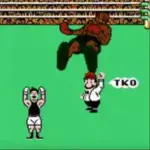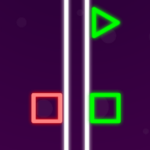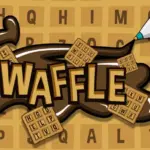In the world of Tower of God Manga, few organizations are as enigmatic and controversial as FUG (Fear, Uncertainty, and Guilt). This shadowy group has been a central force in the story, often blurring the lines between heroism and villainy. As manga fans dive deeper into the complex narrative of Tower of God, the question of FUG’s true nature and intentions becomes increasingly intriguing. Are they the heroes fighting against an oppressive system, or are they villains manipulating events for their own gain? Let’s explore this fascinating aspect of the series and unravel the mysteries surrounding FUG.
The Origins and Structure of FUG
FUG was founded by former Jahad Empire officials and Rankers who opposed the current regime. Their primary goal is to overthrow Jahad and bring about significant changes to the Tower’s social structure. The organization is led by Elders, with Slayers serving as their most powerful and influential members.
FUG’s structure is complex and often shrouded in secrecy. They operate through various cells and factions, each with its own agenda and methods. This decentralized approach allows FUG to maintain a level of unpredictability and adaptability, making them a formidable force within the Tower.
FUG’s Actions: Heroic Rebellion or Villainous Manipulation?
Throughout the series, FUG’s actions have been a source of constant debate among fans. On one hand, they present themselves as champions of the oppressed, fighting against the injustices perpetrated by Jahad and the Ten Great Families. Their goal of overthrowing a tyrannical system resonates with many readers who see parallels to real-world struggles against oppression.
However, FUG’s methods often veer into morally gray territory. They are not above using manipulation, coercion, and even violence to achieve their goals. The organization has been responsible for numerous atrocities, including the manipulation and attempted murder of the series’ protagonist, Bam.
The Case for FUG as Heroes
Supporters of FUG argue that their ultimate goal justifies their means. They point to the systemic injustices within the Tower, where those born into the Ten Great Families enjoy immense privileges while others struggle to climb. FUG’s desire to dismantle this unfair system and create opportunities for all residents of the Tower aligns with heroic ideals.
Moreover, some of FUG’s members, like Ha Jinsung, have shown genuine care and mentorship towards characters like Bam. These moments of humanity suggest that not all within FUG are driven by purely selfish or malevolent motives.
The Argument for FUG as Villains
Critics of FUG point to their ruthless tactics and willingness to sacrifice innocent lives for their cause. The organization’s manipulation of Bam, treating him as a “weapon” rather than a person, is often cited as evidence of their villainous nature. Additionally, the internal power struggles and conflicting agendas within FUG suggest that their noble goals may be corrupted by individual ambitions.
The actions of certain FUG members, particularly those involved in the “Workshop Battle” and “Hell Train” arcs, demonstrate a callous disregard for life and a willingness to cause widespread destruction. These behaviors are difficult to reconcile with a truly heroic organization.
The Role of FUG in Tower of God’s Narrative
FUG’s ambiguous nature serves a crucial role in the storytelling of Tower of God. By presenting an organization that defies simple categorization, the manga creates a rich, complex world where moral absolutes are rare. This complexity reflects the realities of political and social movements, where good intentions can lead to questionable actions, and seemingly villainous groups may have valid grievances.
The internal conflicts within FUG also provide opportunities for character development and plot twists. As different factions within the organization pursue their own agendas, characters like Bam are forced to navigate a treacherous landscape of shifting alliances and hidden motives.
FUG and the Theme of Power in Tower of God
One of the central themes in Tower of God is the nature of power and how it affects individuals and societies. FUG embodies this theme by challenging the established power structures within the Tower. Their existence raises questions about the legitimacy of Jahad’s rule and the ethics of revolution.
Through FUG, the manga explores how power can corrupt even those with noble intentions. The organization’s internal struggles and the actions of its more extreme members serve as cautionary tales about the dangers of unchecked authority and the potential for revolutionary movements to become what they once opposed.
The Impact of FUG on Fan Culture
The ambiguity surrounding FUG has sparked countless debates and theories within the Tower of God fandom. Fans passionately argue for their interpretations of FUG’s true nature, analyzing every action and piece of dialogue for clues. This engagement has led to a vibrant community of theorists and analysts, enriching the overall fan experience.
FUG’s complex nature also allows readers to project their own beliefs and experiences onto the organization. Some may see echoes of real-world revolutionary movements, while others might draw parallels to historical secret societies or resistance groups.
The Future of FUG in Tower of God
As the story of Tower of God continues to unfold, the true nature of FUG remains a central mystery. The organization’s future actions and revelations about its past will likely continue to challenge readers’ perceptions and keep them guessing about FUG’s ultimate role in the narrative.
The potential for redemption arcs for certain FUG members, as well as the possibility of further schisms within the organization, presents exciting storytelling opportunities. How FUG evolves and whether it can reconcile its noble goals with its often brutal methods will be a key factor in determining its final place in the story’s moral landscape.
The Enduring Enigma of FUG
In the end, the question of whether FUG are heroes or villains may not have a definitive answer. Like many elements in towerofgod.org, the organization exists in a morally gray area that reflects the complexities of real-world conflicts and power struggles. This ambiguity is a testament to the depth and nuance of the manga’s storytelling, challenging readers to think critically about concepts of justice, revolution, and the use of power.
As we continue to follow Bam’s journey and the unfolding drama within the Tower, FUG will undoubtedly remain a central and controversial element of the narrative. Their actions, motivations, and ultimate fate will continue to captivate and divide fans, spurring discussions and debates that enrich the Tower of God experience.
What are your thoughts on FUG? Do you see them as misunderstood heroes fighting for a just cause, or as villains whose methods negate any noble intentions they might have? Share your experiences and theories about FUG in the comments below, and let’s continue this fascinating exploration of one of Tower of God’s most intriguing elements!































